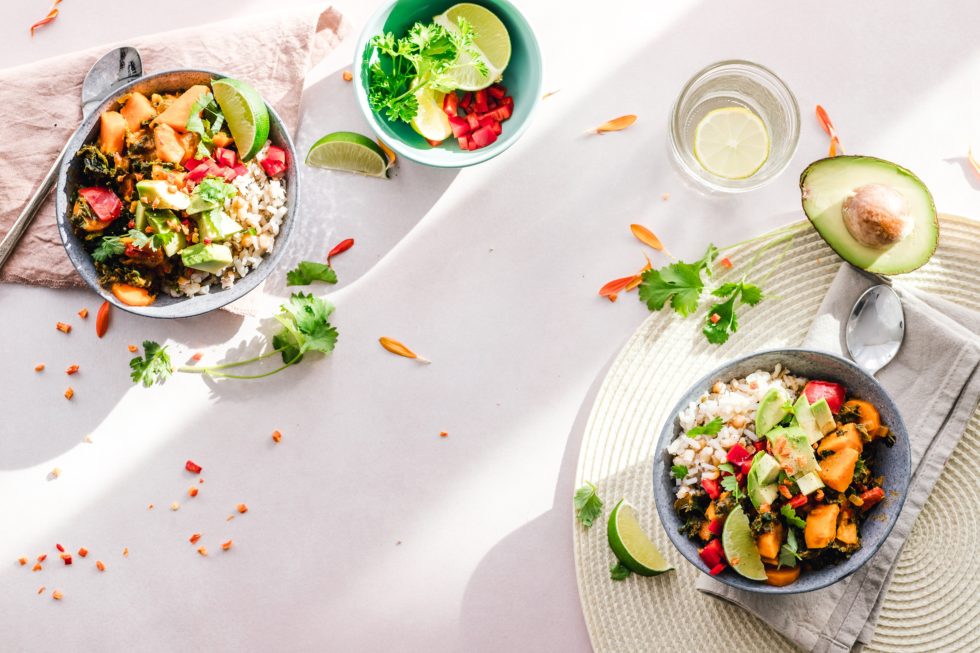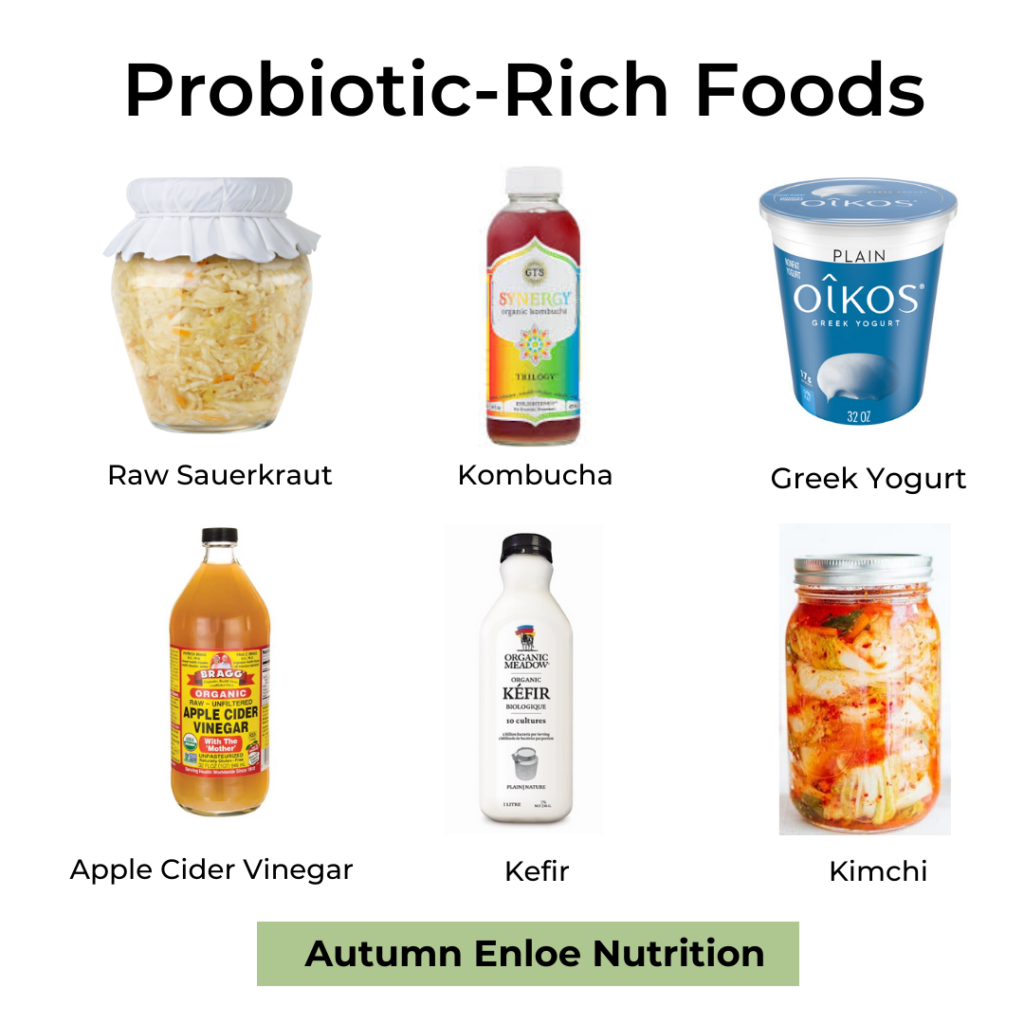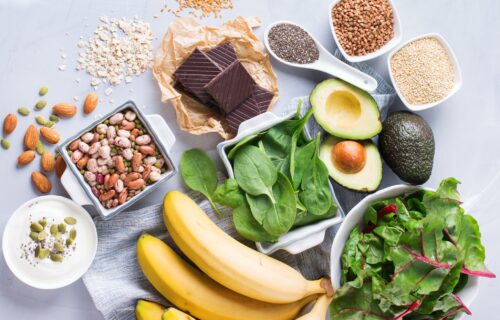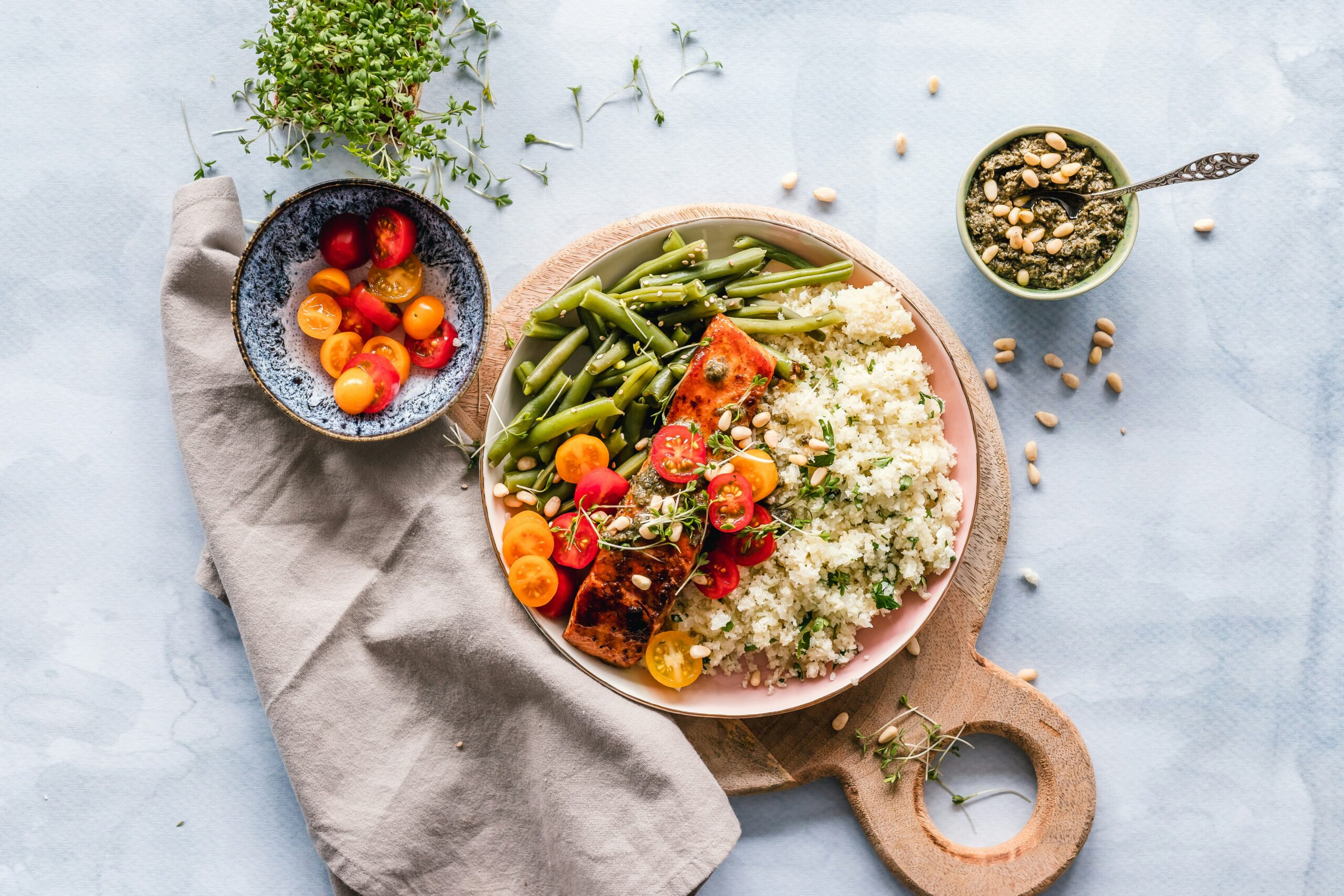
Gut Health 101: What it is, why you should care about it, and ways to support yours
The gut is the foundation of your health.
It’s the site where about 90% of serotonin is produced, contains the majority of your immune system, and is the site where digestion and absorption takes place (among many others).
See why it’s so important?
Unfortunately, our environment is not set up to naturally support your gut.
That’s why this article will give you an overview of what gut health is, and simple ways to support yours on a daily basis for better energy, digestion, moods, and more.
Gut health 101:
The gut is composed of over 100 trillion microbes that make up what is called the gut microbiome. It contains 10 times more bacteria than the rest of the body.
Within the first few days of life, the human gut is colonized by intestinal bacteria.
Our gut microbiome does more than just digest our foods, it’s also:
- The site where about 90% of serotonin is produced
- Contains 70-80% of the immune system
- Acts as a barrier to fight off harmful substances
- The site where absorption of food takes place
- Where B Vitamins, Vitamin K and amino acids are produced
Why is gut health important?
Without a healthy gut environment, several areas of our health can suffer. Some of those include:
- Your mental health (including anxiety, depression, and brain fog)
- Thyroid health (1)
- Your immune function
- Metabolism and energy levels
- Skin health (including acne, eczema and other skin issues)
- Hormone imbalances
- Absorption of nutrients
- Weight loss resistance
Things that wreak havoc on the gut:
There’s several nutrition and lifestyle choices that can negatively impact gut health. Some of those include:
- Diets low in fiber, and high in added sugar, refined carbohydrates and refined oils
- The overuse of antibiotics (which kill of both bad bacteria and good bacteria)
- Sedentary lifestyles
- Poor sleep habits
- Infections
- Overuse of antibacterial soaps
Along with that, genetics and age has an impact on gut health as well.
The gut is also considered the "second brain"
The gut is affected by your experiences and emotions. That’s because bacteria in the gut send chemical signals (including neurotransmitters) which impact memory, emotions, and behavior.
If you’ve ever felt “butterflies in your stomach” when nervous, you’re likely getting signals from an unexpected source: your second brain.
Research has shown that brain levels of serotonin are regulated by the amount of bacteria in early life (2).
This shows that manipulations to the bacteria in the gut (through things like diet, antibiotics, or infection) may have an impact on your mental well-being.
Simple ways to support your gut:
Now that you know what gut health is, let’s talk about ways to support yours.
Start with your food choices:
- Make sure you’re eating enough fiber: Fiber helps provide nourishment to your gut and helps keep things moving along. Aim for at least 25-30 grams of fiber each day (the average person consumes about 10-15 grams).
- Limit added sugar consumption: I’m all about having some sweets once in awhile, but high sugar intake can feed the bad bacteria in the gut. Pay attention to added sugar content in your foods by looking at the “added sugar” section on a nutrition label.
- Avoid foods you’re sensitive to: A no brainer, right? Yet many people consume foods they’re sensitive to and don’t even know it. If you’re struggling with digestive issues, it may be helpful to get tested for food sensitivities. Contact me here to learn more.
- Add in probiotic-rich foods: Probiotics are live bacteria that helps your gut environment thrive. Foods high in probiotics include plain Greek yogurt, raw sauerkraut, apple cider vinegar, kombucha, miso, and kefir.

Consider adding in some supplemental support:
- Probiotic: As mentioned above, these are live bacteria that helps nourish your gut. I recommend probiotics for almost everyone, since there’s so many environmental stressors that negatively impact the gut. Note: there’s several different strains of probiotics, so make sure to work with a healthcare provider to find the right strain for you.
- L-Glutamine: This amino acid helps support the gut by sustaining the balance of bacteria, supports the intentional lining, and can help reduce inflammation (3).
- Digestive Enzymes: These help break down the foods you eat. If you struggle with constipation, bloating, indigestion, or gas, you may benefit from adding in digestive enzymes.
- Collagen: Is the most abundant protein in the body, and may help have a positive influence on your gut microbiome. Try adding a scoop to your morning coffee, into a smoothie, or into a mineral mocktail or in these homemade gut-healing gummies.
Keep in mind that not all supplements are created equal, and aren’t regulated. That’s why I only recommend using brands that are third-partied tested for quality. I use Fullscript, an online retailer that carries hundreds of brands of third-partied tested brands.
Check out Fullscript here. Make sure to talk with your healthcare provider before trying any new supplementation.
Look at your lifestyle:
- Manage daily stress: You’re always going to have stressors in your life, that’s why it’s important to focus on ways to manage it on a daily basis. Some of my favorite techniques include deep breathing and meditation, yoga, and journaling.
- Ensure you’re getting enough sleep: Sleep plays an important role on gut health. For example, studies have found that sleep deprivation, and shift-work changes your gene expression and the makeup of the bacteria in the gut (4).
- Incorporate 30 minutes of daily movement: Movement helps to keep the muscles in your digestion system working well. Aim for at least 30 minutes of movement you enjoy.
- Slow down while you eat: Eating too quickly can impact how well your food is digested and absorbed. Focus on slowing down while you eat by putting your utensil down between each bite.
Looking for Personalized Guidance to Support Your Gut?
Supporting gut health is a key piece of my coaching program, and if you’re looking for more support with this, I encourage you to check out my program video HERE and fill out my short coaching application to take your next step!




My Dad has been on very strong antibiotics for a few weeks. Would you recommend a probiotic and prebiotic for him?
Thank you,
Hi Kathy,
Yes, taking a prebiotic and probiotic would be beneficial to take if he’s on an antibiotic.